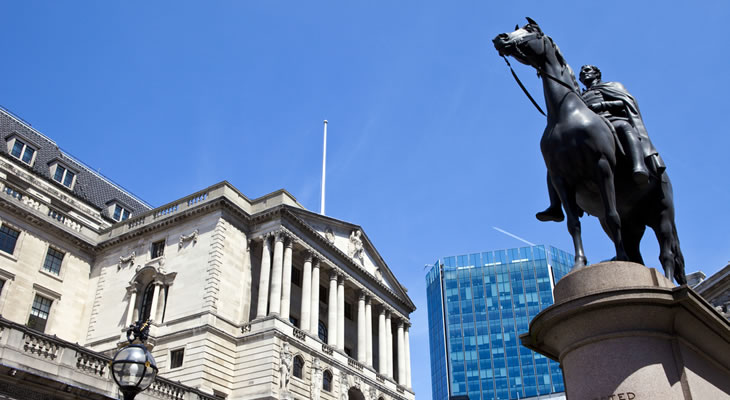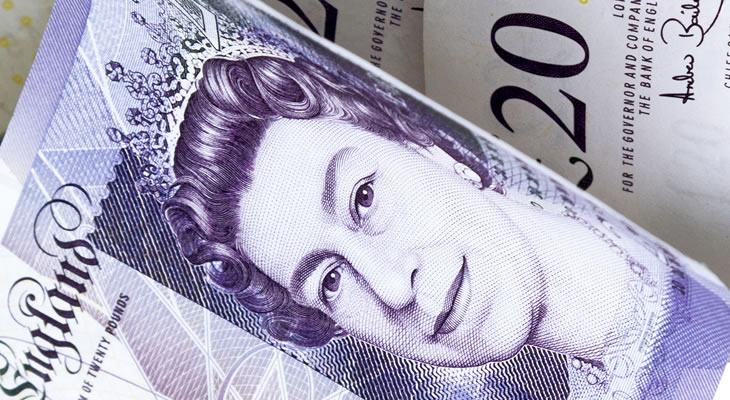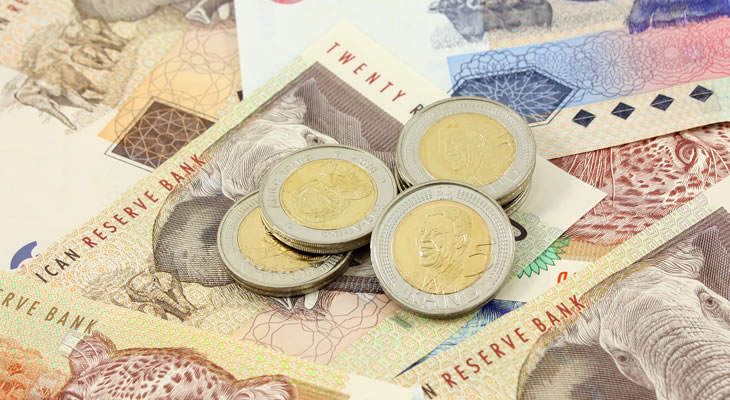- GBP ZAR exchange rate worsens on UK economic conditions – Rand bolstered by ANC losses
- Pound unlikely to rise in near-term – BoE policy measures could bring further misery to investors
- Rand remains vulnerable to political shifts – Rising gold costs to persist with market uncertainty
- Coming months could see further BoE rate cut – US election to hold sway over ZAR
The Pound has been an extremely unstable option against the Rand lately, having been repeatedly devalued in exchange rates by alarming UK economic and political developments.
The Rand has been making a strong performance by contrast, with the 2016 Municipal Election results showing a clear shift in who holds power over South Africa.
GBP Held back by BoE, Rail Strikes, Trade Balance; Rand Jumps after ANC Loses Grip
The Pound has failed to make much in the way of progress lately, having been knocked down repeatedly by a successive string of negative announcements affecting the UK economy.
Monday brought no real data, leaving a five-day Southern rail strike in the south-east and dovish comments from Bank of England (BoE) official Ian McCafferty as a pair of Pound-damaging events.
McCafferty, who was previously the sole proponent of a rate hike, appeared to complete his transformation from a hawk to a dove by stating;
‘If the economy proves to have turned down in line with the initial survey signals, I believe that more easing is likely to be required, but that can easily be delivered in coming months’.
The Rand’s fortunes were opposite those of the Pound’s, with gains coming against most of the ZAR’s usual rivals on political news.
Actual economic data has been limited, but investors have still had plenty to mull over with the outcome of the 2016 South African Municipal Elections.
As expected, the increasingly unpopular ANC party lost a considerable amount of the vote, claiming around 53% instead of the previous 60%. While this has still left the ANC in power, the fact that the tables are turning in favour of parties considered by markets to be less corrupt and inefficient has sent the value of the Rand soaring.
Future BoE Policy Adjustments Could Keep any GBP ZAR Exchange Rate Positivity in Check
The Pound may be in for yet more losses against the Rand and others in the near-term, given that the EU Referendum result seems to have kicked policymakers into action.
This was most evident when the BoE slashed the UK interest rate at the beginning of August, but has also been seen in the mass-purchase of bonds more recently as part of quantitative easing (QE) measures.
Given that the BoE initially failed to reach its purchasing target on in-demand bonds, the central bank may end up having to give out more than it gets back, depending on the circumstances.
BBC Business Correspondent Jonty Bloom outlined the situation by saying;
‘as the Bank of England cuts interest rates [and] pension funds …investors search for something that pays a reasonable level of interest – those are gilts. The lower interest rates go, the more they want to hold on to these safe and rewarding gilts. This is the liquidity trap, the more the BoE tries to pump money or liquidity into the economy, the more investors want to put it somewhere safe, boring and unproductive’.
South African Rand Forecast: Market Unrest may Continue to Support ZAR via Rising Gold Costs
The future for the Rand is expected to continue to be favourable, given that present conditions have been supportive of the South African currency.
Although worries of ‘Brexit’ have been voiced, the South African economy appears to at least be on the mend compared to previous years, though roads to recovery are rarely easy to travel.
The cost of gold per 100 ounces has been on the rise ever since the start of June, having shot up dramatically due to uncertainties in the safety of currencies, as well as the EU Referendum result (a jump from around $1270 to about $1325 was seen in late June).
Since then, the price has trended around $1350, and given owing to gold’s status as a nationally important commodity, it seems likely that further price increases will keep the Rand in a strong position against the Pound as long as this continues.
GBP ZAR Long Term Forecast – Will the US Election Help the Rand and could another BoE Rate Cut be Incoming?
The next major events to watch out for when tracking the Pound Rand (GBP ZAR) exchange rate in 2016 will be the four remaining BoE monthly interest rate decisions, as well as the outcome of November’s US presidential election.
In the former case, any further BoE rate cuts, which could take rates as low as 0.00%, are likely to shatter the Pound’s value in the immediate aftermath.
For the Rand, the buildup to and outcome of the US election could prove highly favourable; this is because the uncertainty over who will end up ruling the country is likely to peak in the days before the vote, thereby weakening the US Dollar and strengthening the Rand as a result.
Additionally, should volatile candidate Donald Trump end up in office, the US Dollar may enter a prolonged state of freefall, thereby boosting the Rand ever further.
Recent GBP ZAR Exchange Rates
At the time of writing, the Pound Rand (GBP ZAR) exchange rate was trending in the region of 17.2960 and the Rand Pound (ZAR GBP) exchange rate was trending in the region of 0.0577.




Comments are closed.